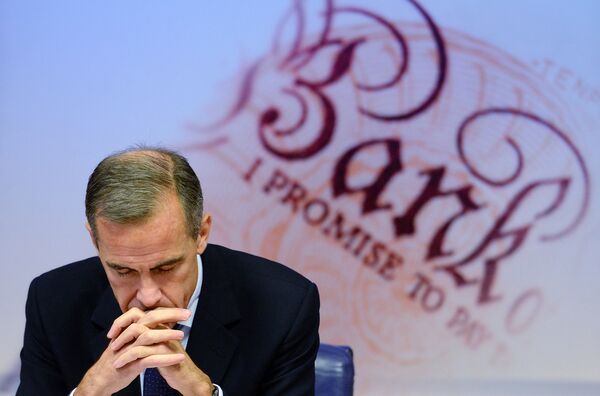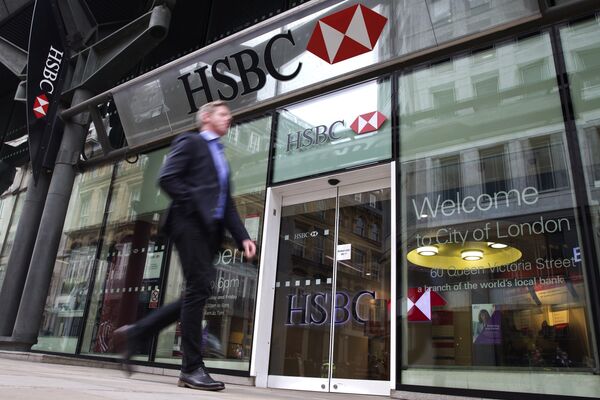It's been two months since June 23, when the unprecedented vote by Brits to leave the European Union sent shock waves around the world, destabilized financial markets, and toppled former Prime Minister David Cameron.
Several banks and financial experts are warning that the financial fallout has only just begun.
"2017 expectations are shrinking dramatically. Pre-Brexit, we were seeing figures predicting that the UK economy would grow by 2.1% in 2017. Now, in the last two months, those expectations have dropped to a predicted 0.5% contraction. We'd usually call that a recession," one City source told Sputnik.
"It could happen by the end of the year."
Reuters is also forecasting a 0.1% contraction in both the last quarters of this year. Two consecutive quarters of contraction is the technical definition of a "recession."
This week, the FTSE 100 lender HSBC, added to the bad news, warning Brits that the pound may depreciate so far that it reaches parity with the euro by Christmas.
A one-to-one exchange rate would be an astonishing hit to Sterling not seen since the infamous Black Wednesday on the September 6, 1992, when the UK was forced to withdraw from the European Exchange Rate Mechanism (ERM), after being unable to keep the pound above its agreed lower limit.
Sputnik's City source agreed that Brits should brace themselves for significant depreciation of their currency adding:
"At the moment the pound is trading at 1.33 against the US dollar. By the end of this year, we could see that drop to as low as 1.2."
That would be an even larger drop than during the 2008 financial crisis.
Pro-Brexit campaigners have sought to focus on the fact that equities on the FTSE 100 have steadied in the aftermath of the UK referendum vote. In fact, all losses have been regained and more since the referendum.
However, the index is dominated by multinational companies that make the majority of their profits overseas.
The FTSE 250 is an index focused on the UK domestic economy, comprised of medium-sized manufacturers, service companies and retailers. FTSE 250 companies are likely to be far more exposed to any UK recession.
The Governor of the Bank of England, Mark Carney has attempted to allay fears in the markets, cutting the base interest rate to a record low of 0.25%. The Bank of England also re-started its program of quantitative easing (QE), which is buying bonds as a way of getting money into the economy.

However, conversely this has greatly reduced the yields that investors are now getting on the government bonds.
"Pre-Brexit, 10 year government bonds were trading with 1.4% yields. There has since been a massive drop to 0.5%. It's significant because there is usually not so much volatility with government bonds," Sputnik's City source said.
"There is now little incentive for investors to come into the UK to buy pounds — they'll be getting next to no return on their investment.
"The only way I can see an inflow of money from investors, is that with Sterling depreciating, buying property is less expensive."
Last week the European Central Bank (ECB) acknowledged that the 27-nation bloc is facing new "damaging headwinds."
However, they have thus far proven reluctant to indicate exactly what policies they are willing to take to help manage these challenges.
Sputnik's city source indicated that this is due to there being several more potential global political shocks in the pipeline over the next nine months.
"We have the US election upcoming in November, plus the German, Hungarian and French elections. And in Hungary we could see a far-right candidate winning, so there are many potential shocks that could also affect the EU.
"I think the ECB will wait until they have passed before announcing policy changes…We are in unknown territory."
In the meantime, the UK and the EU is set to remain mired in economic uncertainty.
HSBC group chief executive Stuart Gulliver summed it up earlier this month, saying:
"Following the outcome of the referendum…there has been a period of volatility and uncertainty which is likely to continue for some time."





